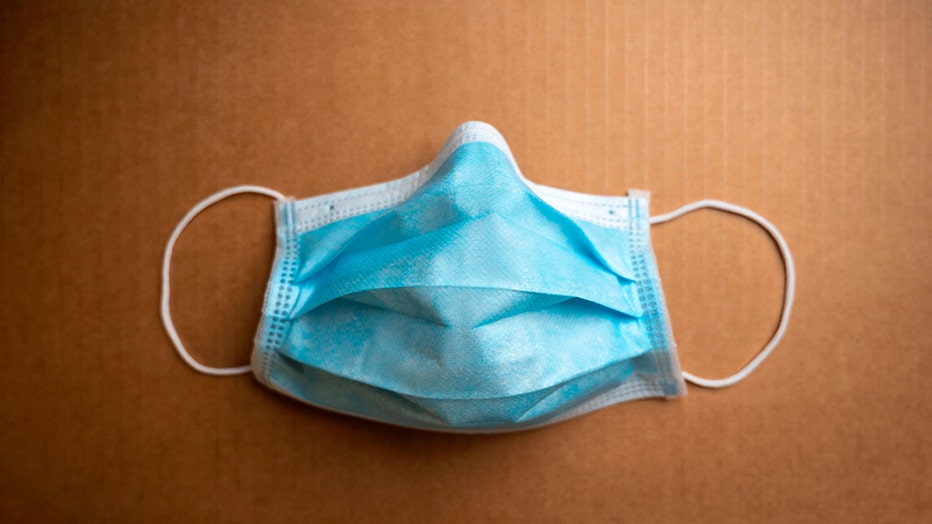Masks help prevent COVID-19, yet another study shows
ATLANTA - While several studies already show that face masks and respirators effectively filter virus-sized particles and help reduce the spread of COVID-19 transmission, yet, another study is backing this evidence up.
According to a study, published by the Centers for Disease Control and Prevention last week, consistent use of a face mask or respirator in indoor public settings was associated with lower odds of a positive COVID-19 test.
The study enrolled randomly selected California residents who had received a test result for COVID-19 between Feb. 18, 2021 and Dec. 1, 2021.
Face mask or respirator use was assessed among 652 participants who had received a positive test result for COVID-19, and 1,176 participants who had received a negative test result but reported being in indoor public settings during the two weeks preceding testing and who reported no known contact with anyone with confirmed or suspected SARS-CoV-2 infection during the time.

A picture taken on May 19, 2020 in Toulouse southern France shows a protective surgical face mask. (Credit: LIONEL BONAVENTURE/AFP via Getty Images)
"Always using a face mask or respirator in indoor public settings was associated with lower adjusted odds of a positive test result compared with never wearing a face mask or respirator in these settings," the study authors wrote.
A higher proportion of participants (78.4%) was unvaccinated compared with vaccinated participants (57.5%).
An additional analysis assessed differences in protection against the infection by the type of face covering worn, and was limited to a subset of participants enrolled after September 9, 2021, who were asked to indicate the type of face covering they typically wore.
"Face masks or respirators (N95/KN95) have been shown to help filter out virus particles in laboratory conditions. This study builds upon data from laboratory settings and demonstrates the real-world effectiveness of wearing masks to protect the wearer from COVID-19," the California Department of Public Health told FOX Television Stations Group.
This study did not account for other preventive behaviors that could influence risk for acquiring infection, including adherence to physical distancing recommendations.
Yet, these findings are consistent with existing research demonstrating that face masks or respirators effectively filter viruses in laboratory settings and with other studies showing reductions in SARS-CoV-2 incidence associated with community-level masking requirements.
In November, mask research analyzing several studies worldwide showed wearing a mask cut the number of new infections by 53%. Meanwhile, another study in the U.S. reported a 29% reduction in new COVID-19 cases in states where masks were mandatory.
"These findings reinforce that in addition to being up to date with recommended COVID-19 vaccinations, consistently wearing a face mask or respirator in indoor public settings reduces the risk of acquiring SARS-CoV-2 infection," the study authors continued. "Using a respirator offers the highest level of personal protection against acquiring infection, although it is most important to wear a mask or respirator that is comfortable and can be used consistently."
The study also highlights the importance of improving access to high-quality masks to ensure access is not a barrier to use.
The California Department of Public Health noted that the difference between different types of fabric masks may be important to guide more specific recommendations.
Last month, the CDC recommended people opt for the highly-protective N95 or KN95 masks over cloth masks to ward off the highly-contagious omicron variant and slow the coronavirus spread.
"Masks are designed to contain your respiratory droplets and particles," the CDC said on its website. "They also provide you some protection from particles expelled by others."
Many infectious disease experts have noted people prefer cloth masks because they are more comfortable and fashionable to wear, but these masks can only block larger droplets of COVID-19, not smaller aerosols or particles that can also carry the virus.
But, Dr. Rochelle Walensky, director of the CDC, noted last month that any mask is better than none.
"I’ll just add that CDC continues to recommend that any mask is better than no mask. And we do encourage all Americans to wear a well-fitting mask to protect themselves and prevent the spread of COVID-19, and that recommendation is not going to change," Walensky said.
She added: "The best mask is the one that you will wear and the one you can keep on all day long, that you can tolerate in public indoor settings."

